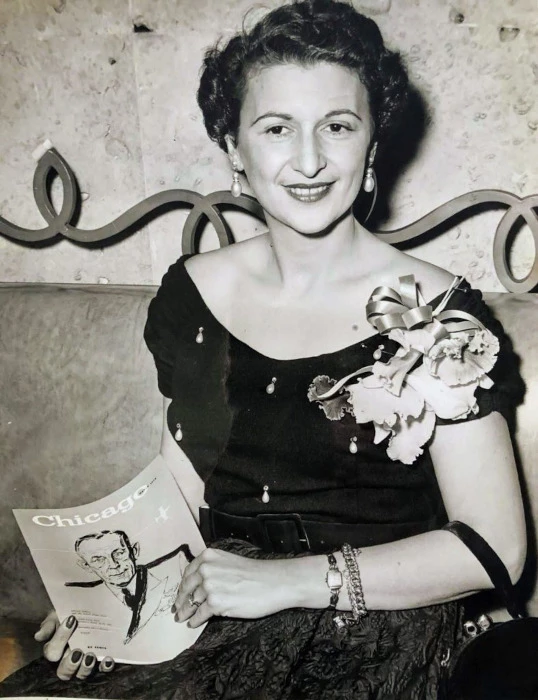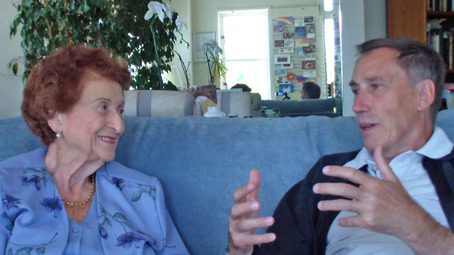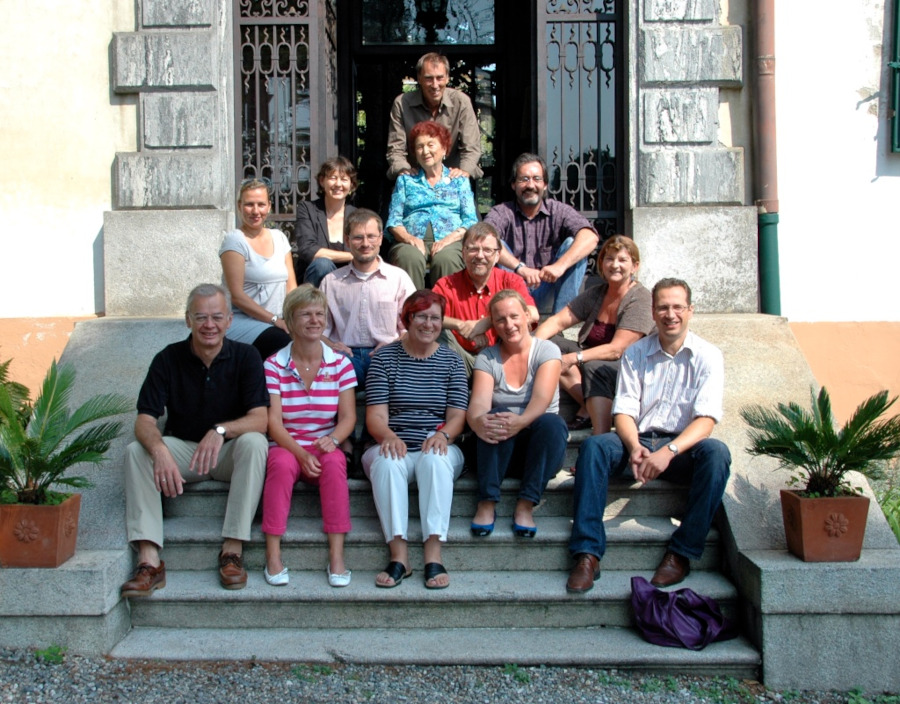purpose of these sites
Fanita English was one of the most inspiring and charismatic persons in the universe of humanistic psychology, a universe full of interesting, inspiring and charismatic humans.
These sites provide access to her most important concepts and models. Furthermore, within the videos Fanita personality, her spirit and her thinking get visible and might deepening the understanding.

Intro to Fanita’s life work
Fanita started her career as classical psychoanalyst. She got in contact with the founder of TA Transactional Analysis, Eric Berne, and the founder of Gestalt Therapy, Fritz Perls, in the days when they were still widely unknown, but supposed to be new kids on the block.
She sensed the potential within these concepts, learned, practiced and taught them. But this was not enough for a creative person, blessed with a sharp intelligence and great intuition about inner processes of human beings. She developed the theories further, in particular TA, and enriched the fundamental models with her concepts.
Fanita was and still is well known for both her exceptional style as therapist and workshop leader and for her groundbreaking concepts.
Fanita + Joachim
I met her as a student of TA, later we cooperated as partners in business and in publishing projects, and most important we became close friends. A friendship which included and still includes our families.
We met in different places around the world and at her place in San Mateo. During these encounters we developed the idea of these sites. They are a result of our friendship.

The origin of the Legacy Project
Beside Fanita’s willingness to get a grip on things and on human processes in her workshops she tended to a slightly chaotic lifestyle, which had an echo in her ‚office-style‘, the way she not organized her office.
When I saw her office at her home, I perceived an interesting topography built out of letters, articles, books and awards. It was a treasure, but an inaccessible treasure.
It was obvious and clearly necessary to do something. We called this something „the Legacy Project“.
The challenge of the Legacy Project
It isn’t easy to capture the legacy of someone whose life’s work emphasis was on interaction, interaction in workshops, in therapeutic settings, in teaching classes. This kind of work is fugacious, it is airy. It is perceivable, when you are in the same moment in the same room. In our profession as coaches, consultants and therapists, we leave traces of our work within other people but not in the material world. Architects can leave their building to the aftermath, we find the afterglow of a successful session in the eyes of our clients, and in the stories they will tell about years later. So how to capture this? Fortunately, Fanita wrote a lot of books and articles. And even more fortunately, she was willing to talk with me about her concepts and models in front of a camera.
The content
The combination of written material and personal talks on tapes, that was the path we decided to make Fanita’s life work available at one place online. Available for all, who want to get acquainted with her concepts and models, and for all to want to get to know the stories and the person behind these concepts.
The Legacy Project was worked out in the years 2012 to 2013. We shared the ideas and thoughts about it and we decided which articles were the most important and relevant ones.
Fanita died in January 2022. We added some material which shows her personality. You will find these videos in the category personal talks.
Therefore, these sites may keep her being and thinking alive and valuable for all of us.
Joachim Karnath, Feb 2022

Stations of her life
- Born in Galatz/Romania 1916 as the only child of a jewish couple
- Lived the first 4 years in Galatz and moved then with her parents to Istanbul
- Youth and adolesence in Istanbul
- Education at an english school
- 1932 – as 16-year-old one year of finishing school in Vienna
- 1934 – School for journalism and business in London
- 1937 – 1940 Studying Psychology at Sorbonne University, Paris
- 1941 escape in the USA due to the Nazi-Invasion of France
- Education as Child-Therapist in Bryn-Wawr and in Detroit
- Training Analysis and graduation in 1962 as therapeutic psychoanalist at the Psychoanalytic Institute of Chicago
- 1964 Training at the Tavistock Institute in Leicester/England
- 1965 first contact with Eric Berne
- TA-Training with David Kupfer at Berne’s TA-Institute in Carmel/California
- 1969 first articles about TA-concepts
- Co-founder of the Gestalt-Institute in Chicago
- Training with Fritz Perls and graduation as Gestalt-Therapist
- 1970 foundation of the „Eastern Institute for TA and Gestalt“ in Philadelphia
- 1972 first trip to Europe – introducing TA and Gestalt Therapy in trainings-workshops
- since then several trips to Europe (in particular to France, Germany, Italy and Switzerland) and Asia (India and Japan) to hold training-workshops in TA and Gestalt as well as therapeutical workshops
- further development of her own concepts as an enlargement of TA
- 1977 death of her son Brian in an accident
- since then Fanita concentrated her professional work on workshops abroad, mostly in Europe
- long-term cooperation with the Odenwald Institut, led by Maryanne Kübel, and later with CONTRACT lead by Joachim Karnath
- awarded twice the Eric-Berne-Memorial-Award in 1979 and 1998 for her contributions to TA
- awarded the Gold medal of the EATA in 2010
- 2010 last workshop in Europe at Lago Maggiore
- 2012 – 2015 video recording for her legacy project in San Mateo
- 2010 – 2021 still working with a few clients and attending a few meetings of USATAA and ITAA
- 18th January 2022 – she died at her home in San Mateo, California




























